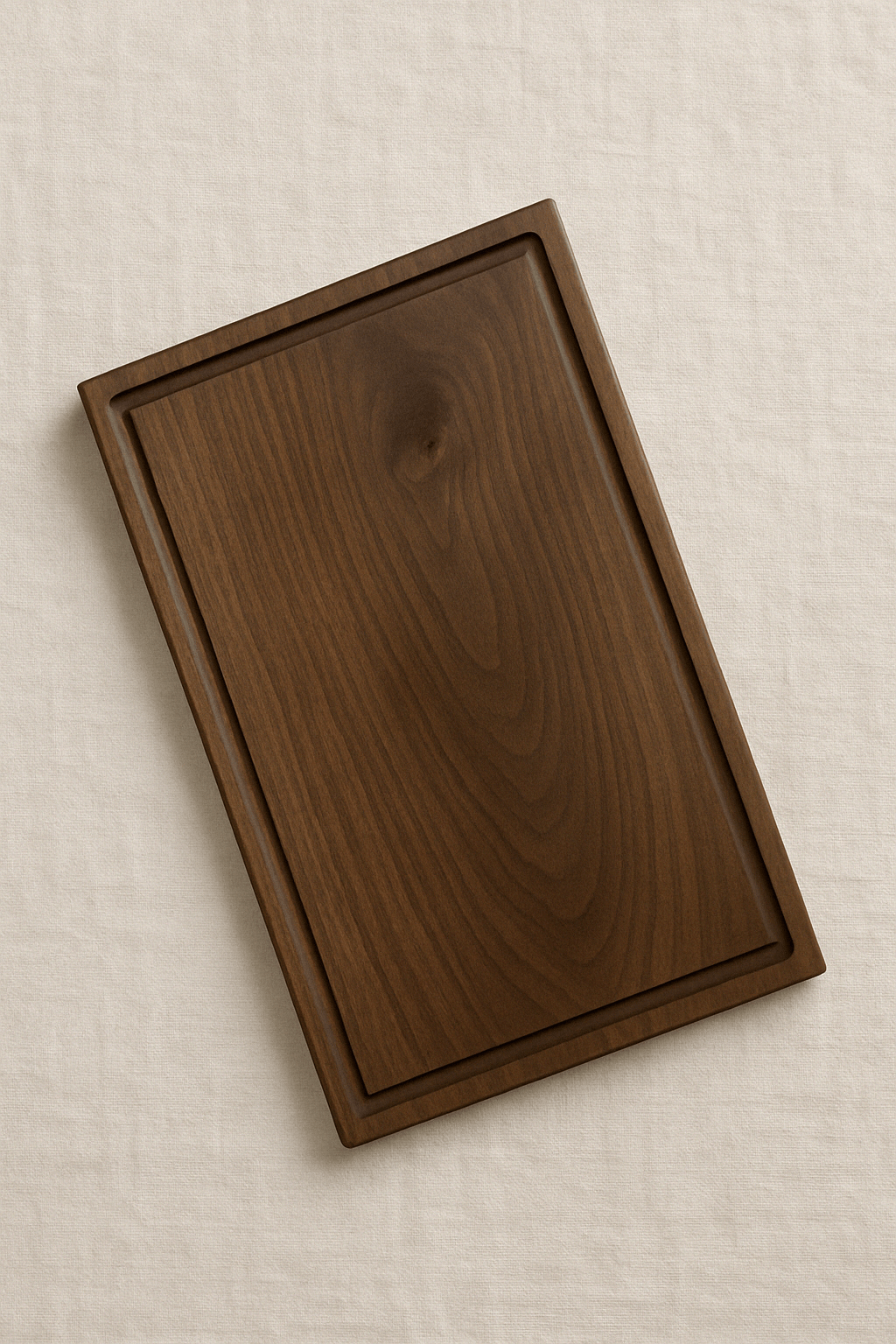If you’re looking for a chopping board that’s functional and beautiful, walnut is one of the best choices you can make. It’s durable, naturally antibacterial, kind to your knives, and looks great on a worktop. But once you’ve got one, how do you clean a walnut chopping board properly? And how can you keep it looking as good as the day it arrived?
Let’s break it down.
🪵 Why Choose Walnut for Your Chopping Board?
Walnut isn't just chosen for its rich, dark tone (though that’s why we love it!). It’s a hardwood that’s dense enough to be durable, yet soft enough to be gentle on your knives.
Our walnut boards are made from a single piece of wood, with no glue or joins, which means fewer weak spots and a smoother finish.
Benefits of a walnut chopping board:
-
Kind to knives (less sharpening needed)
-
Naturally antibacterial
-
Strong, heavy, and stable on the counter
-
Unique grain and tone in every board
-
Doubles as a serving or display board
🧼 How to Clean a Walnut Chopping Board
1. Wipe Down After Use
Use a soft cloth or sponge with warm, soapy water. Wipe both sides (even if only one was used) to help prevent warping.
2. Never Soak It
Avoid soaking your board or putting it in the dishwasher, excess water can cause warping or cracks over time.
3. Disinfect Occasionally
For a natural clean, rub the board with half a lemon and a bit of salt, then rinse with warm water and dry thoroughly.
4. Dry It Upright
Air-dry your board standing up so both surfaces dry evenly.
5. Oil It When It Looks Dry
Apply a food-safe mineral oil or board wax when the wood starts to look a little dry or dull. This helps protect the surface and bring out the natural colour.
🧽 Bonus Tip: How Often Should You Oil It?
Most people oil their walnut board every 3–4 weeks if it's in regular use. If you're using it daily, you may need to oil it a little more often, you'll know it's time when the surface looks patchy or pale.
🪚 Looking for a New Walnut Chopping Board?
We make solid walnut chopping boards from a single piece of American black walnut, no glue, no joins, and hand-finished with food-safe oil. Each one is crafted to be functional, long-lasting, and good-looking enough to keep out on display.
🔍 FAQs
Can I use olive oil to oil my chopping board?
No — use a food-safe mineral oil. Cooking oils like olive or vegetable oil can go rancid and leave a sticky surface.
How long will a walnut board last?
With regular care, a solid walnut chopping board can last for decades.
Is walnut better than bamboo or plastic?
Walnut is more durable, better for knives, and more visually appealing. Bamboo and plastic boards are harder on blades and can retain bacteria in deep cuts.

